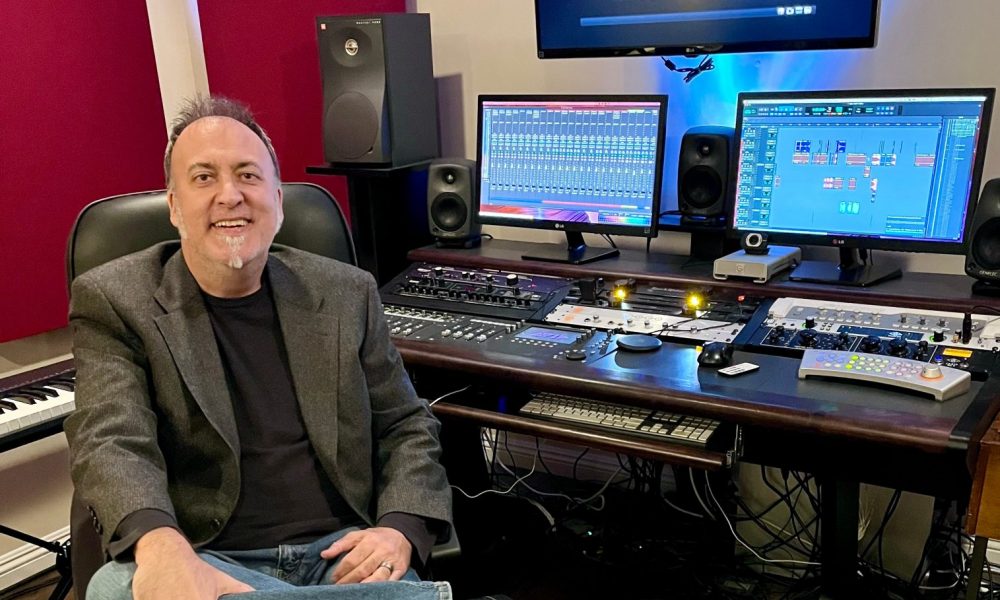

Today we’d like to introduce you to Thomas Corkran.
Alright, so thank you so much for sharing your story and insight with our readers. To kick things off, can you tell us a bit about how you got started?
I grew up in Chalfont, PA a suburb outside of Philadelphia. My childhood was always filled with lots of music. My parents loved singing in choirs. They actually met in their college choir and carried that interest with them later in life singing in our church choir. I ended up sharing their love for it and joined them in our church choir when I was old enough. I also sang in my high school choir and eventually picked up the bass guitar. My first memories of playing the bass were in my high school’s musical theater orchestra. I remember getting in trouble for playing Van Halen bass lines during our orchestra rehearsals when I was supposed to be playing music for “Pippin.” I soon joined a rock band with friends from my high school. The band was called Surface Tension. We were too young to play in bars so we played in any strange venue we could find. I always remembered having unusual gigs like at a local furniture store’s grand opening. One time we actually had a gig at a juvenile detention center. I recall our original progressive rock songs not going over too well with the rowdy kids so we had to play some of our Pink Floyd and Led Zeppelin covers more than once to keep them from yelling at us. As odd as those gigs were they were always exciting and I knew I wanted to pursue music professionally. After high school, I moved to Boston, MA and attended Berklee College of Music. I was a songwriting major and spent a lot of time in the Berklee studios recording, so after I graduated I opened a small recording studio in Boston but soon realized I wanted to give the band thing a shot in California and made the proverbial trek to Los Angeles.
I was in a rock band playing around the LA scene and I had some friends who were aspiring filmmakers. They would ask me to write music for their short films. More times than not they would ask me if I could also clean up the production sound and do a final mix in my composing software. I ended up doing that for a few years until I decided to dive into it full-time. The band thing had fizzled out and I had come to a realization that I liked writing and recording music more than performing it so I decided to focus more on studio work. I knew I needed some formal training to do sound for film so I went to The Los Angeles Film School. It was a risky venture for me to go back to school in my thirties, let alone film school. At that time I had a decent corporate day job doing graphic design and had a family so it wasn’t exactly the ideal time to jump into film school, but my wife supported my decision so away I went.
Luckily I had very ambitious classmates and most of the class did thesis films which found me sound designing and composing music for most of my class’s films. That experience was really paramount in helping me transition into the professional world. There were only a few sound majors in my class, so I also did a lot of the production sound for all the thesis films. Production sound was something I never really thought about getting into but figured it’d be a solid way to earn a living out of film school. After graduating, I was able to jump around pretty easy from production sound, sound design and film composing and stay busy between the three.
As I started to work on bigger projects, I found balancing the three areas of filmmaking harder to manage. Postproduction always has deadlines and production sound often involves long hours and traveling. When you put the two together, it makes for scheduling challenges. About that time I had built a 5.1 sound studio and had every intention of hanging up the production sound gear and settling down to just doing postproduction work but I really missed being on set. I do a lot of documentaries and cherish new places and experiences I would never have had otherwise only doing studio work. I always feel lucky to be on a documentary where I’m able to learn something new about the subject matter that we’re filming about. That being said, I’m 15 years into my film career and still go back and forth from the three areas. One day I’ll probably settle into one field but I just love too many aspects of all three areas of work. It’s a tough sell for me to just do one thing.
Would you say it’s been a smooth road, and if not what are some of the biggest challenges you’ve faced along the way?
I suppose my biggest strength is also an obstacle. Relating to people can be easy and challenging all in one. As a composer or sound designer, I can connect with my directors on a creative level. Bigger narrative sets are usually hectic with all the different departments buzzing around like bees trying to be ready for the shot. I’m usually the quietest one on set. It has nothing to do with sound so much as always being fascinated with how people interact with one another. Production sound isn’t creative but you learn a lot about people being on set if you know how to listen and I love being a fly on the wall taking it all in. Ironically people show their most natural light on set preparing for scenes that are mostly about fictional characters.
I’m extremely proud of the fact that I made it through the first couple of years of working professionally in the film business. Being responsible for a films audio is a big responsibility and sometimes novice productions do everything they can to try to get you to sacrifice your work. The saying “what doesn’t kill you makes you stronger” couldn’t be truer on set. I cherish every horrendous low-budget film I was ever a part of. Ultimately, it’s the people you work with and the experience you get out of it which is what I always look for. Getting accolades and being part of something with name recognition is nice but that’s not what you really remember when looking back at your career. It’s the people that you worked with and maintained friendships with that are what you take with you. I’m very blessed to have worked some great ones and picked up a lot of lifelong friends on the way.
Alright, so let’s switch gears a bit and talk business. What should we know about your work?
I’m proud of the Emmy I was nominated for last year. To be asked to score a beautiful film like “Path of the Daff “ was important to me. It’s a documentary about the healing process families of the 2013 Boston Marathon bombings have gone through and it felt good to contribute to something of that importance. From my years living in Boston, the subject matter really hit home. Films like this that aren’t backed by well-connected deep-pocket investors really need to find their legs solely through merit and “Path of the Daff” really resonated with audiences and did that. I’m grateful to have been a part of something like that which was able to help a great city like Boston heal from something so awful.
There are music documentaries I’ve worked on as a production sound mixer that have really tied my music and sound careers together and have been incredibly rewarding to have worked on. I production sound mixed “Hired Gun” which is about hired gun musicians who play on albums and tour with big acts like Billy Joel, Pink, Alice Cooper and Ozzy Osbourne. Working with the musicians, I grew up studying and respecting was certainly a high point of my career. The film is based on people who are masters of their craft and it was great to be a part of something on that high a level. It was also a career-high to have a film I sound mixed get re-record mixed at Skywalker Ranch. The stakes seem higher for a music documentary to sound good and it really sounds amazing. Most importantly the film really moves people and brings to light a select group of musicians who have contributed greatly to the success of these big acts but remain greatly overlooked themselves. Although I’ve never considered myself a musician of the caliber of the subjects of Hired Gun, I really appreciated it from a musician standpoint and am glad it was made. Being able to record sound on those interviews was a real rush and certainly the reason why I got into this aspect of filmmaking.
I recently starting working for a production company called “Allegheny Image Factory” that produces films out of the West Virginia area. They do a lot of films for the Lifetime Channel. They’re a great group of people and we have a lot of fun together. I had actually met one of the producers, John Michaels on a low-budget film we had worked on together a decade ago. We managed to stay in touch and when he recently needed a sound guy, I got the call. Yeah, sometimes working with people you love means traveling from California to work in West Virginia. This past year was strange when I think about how I moved to California to be in the movie industry and wound up working back east not too far from where I grew up.
Can you talk to us a bit about happiness and what makes you happy?
I’ve recently found a silver lining to traveling. Long hotel stays away from home give me time to pursue a lifelong dream of owning my own company. It’s a company I co-founded with my business partner and longtime friend, Joe Plascencia. The company combines the things we love most in life and puts it in a package designed to help kids. The company is called “Misfit Unlimited” and part of the company’s mission statement is helping kids with “Dyslexia” and “Attention Deficit Disorder” through music and art. The company combines multi-media elements and plush toys to bring early childhood developmental learning tools to kids. 2022 was a big year for us. We finally broke into the retail market and got some of our plush toys into “S&R Membership” in the Philippines and just secured our first big North American retailer. It’s exciting to see a passion project get out of that stage and into the making money stage.
On the topic of happiness, I suppose it would be appropriate to bookend things sharing a podcast I’ve been a part of for the last 4 years. The Podcast is called “Progressive Palaver”. Incidentally, my high school rock bandmates and I have stayed in touch over the years and formed a different type of group. This time we talk about progressive rock albums. So far we’ve gone through the catalogs of Rush, Yes, Genesis, Marillion and Pink Floyd just to name a few. We love talking about the music that got us started in life and sharing our love of these bands in the form of a podcast. It’s wonderful to be a part of projects with people you have real history with. Everything else is gravy.
The future has a lot to look forward to and if it’s anything like the last few decades, it’s going to be exciting to say the least. Onward and upward, as they say.
Contact Info:
- Website: corkranmedia.com
- Instagram: http://www.instagram.com/corkran_media
- Facebook: https://www.facebook.com/thomas.corkran.5
- Twitter: Thomas Corkran
- SoundCloud: https://soundcloud.com/user-105828382
- Other: misfitunlimited.com
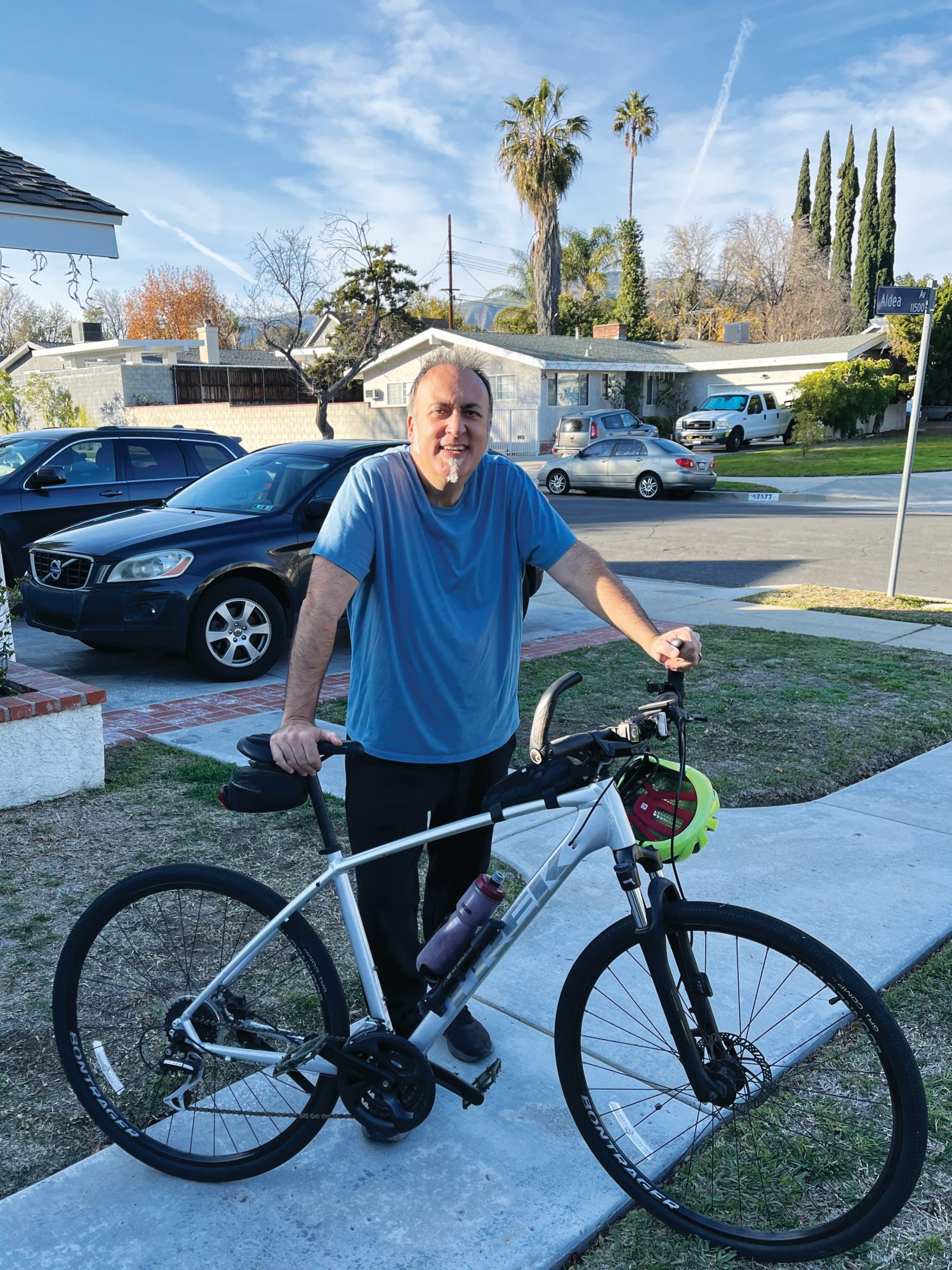
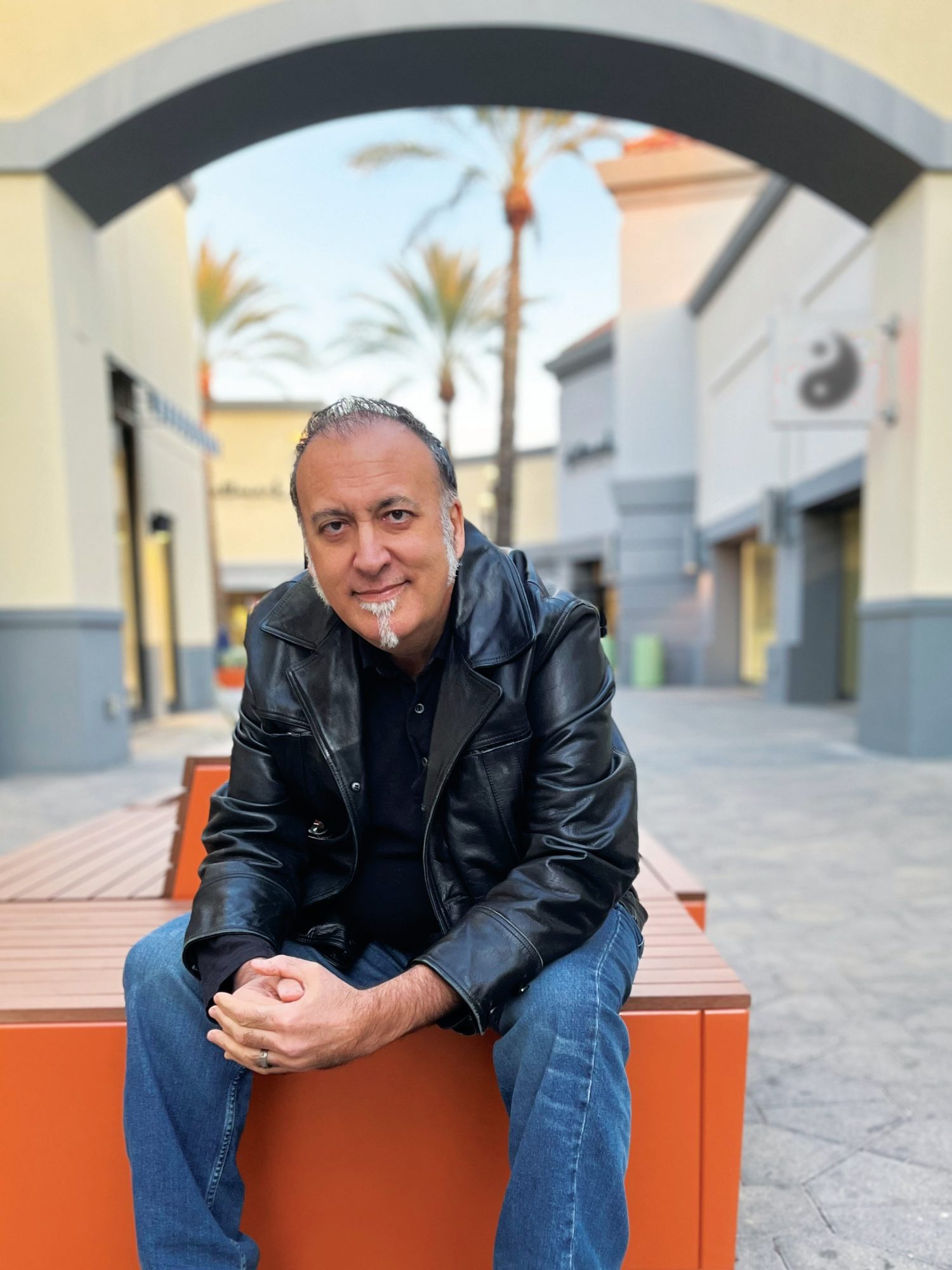
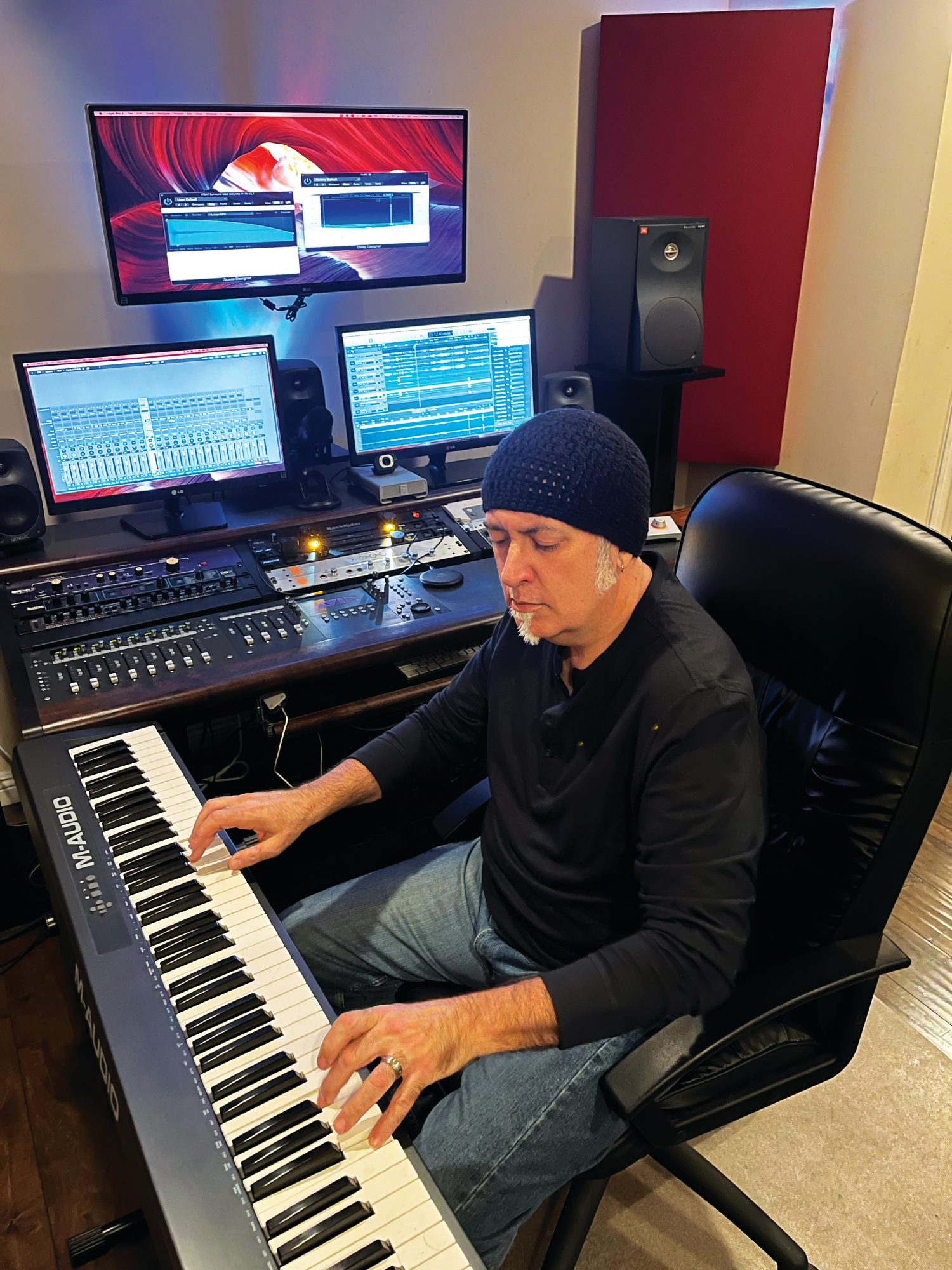
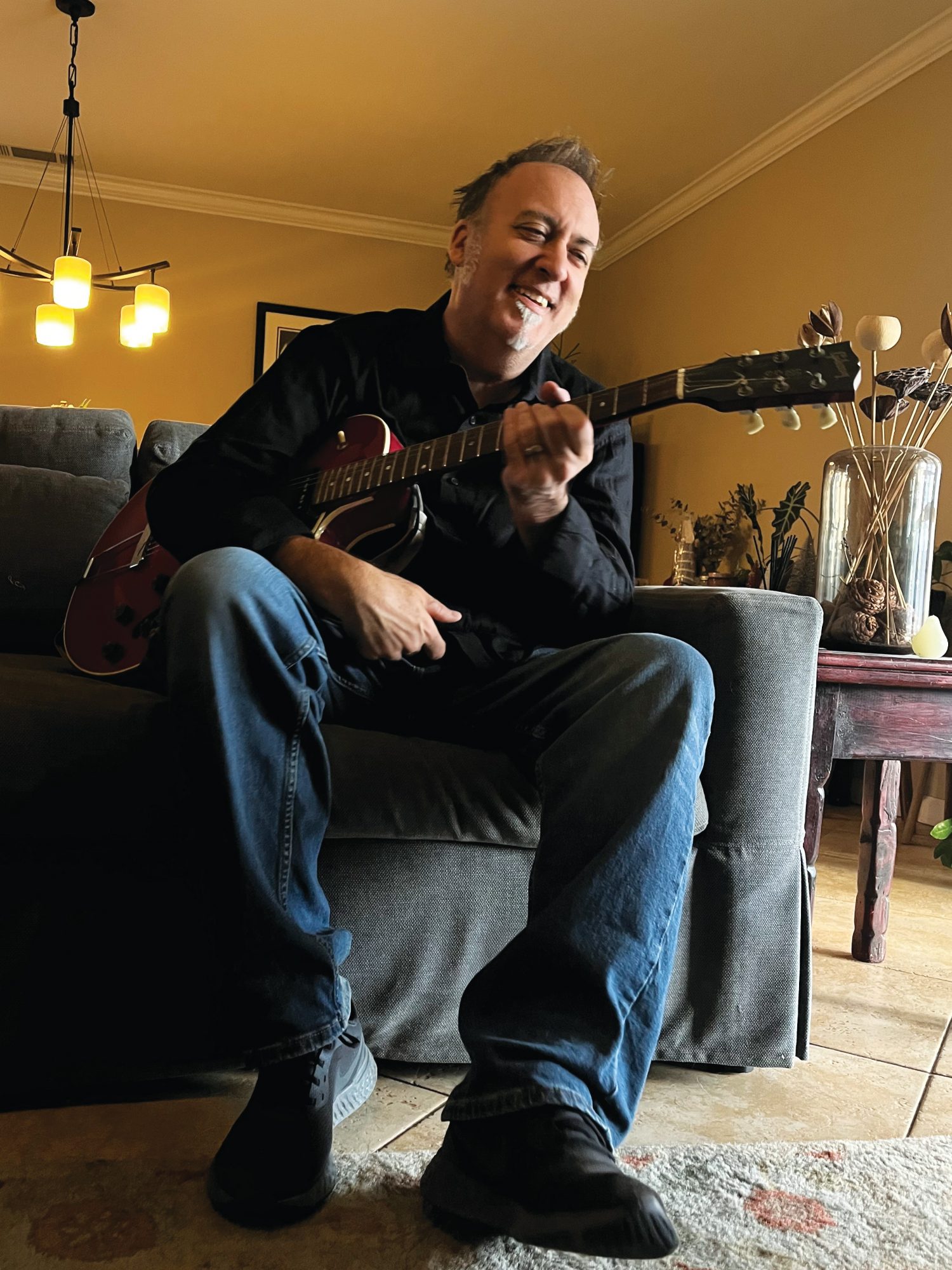
Image Credits:
Alexandra Corkran Sophie Corkran











